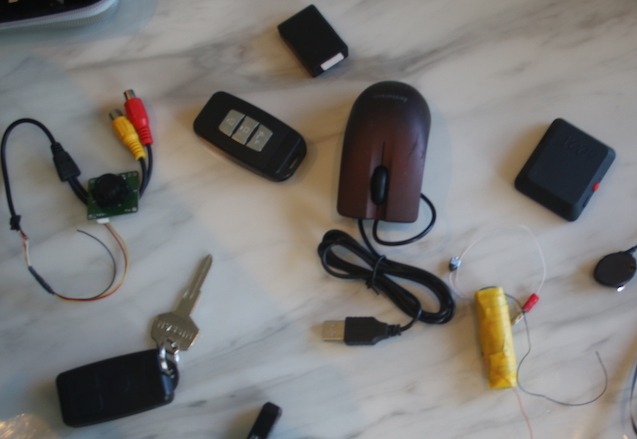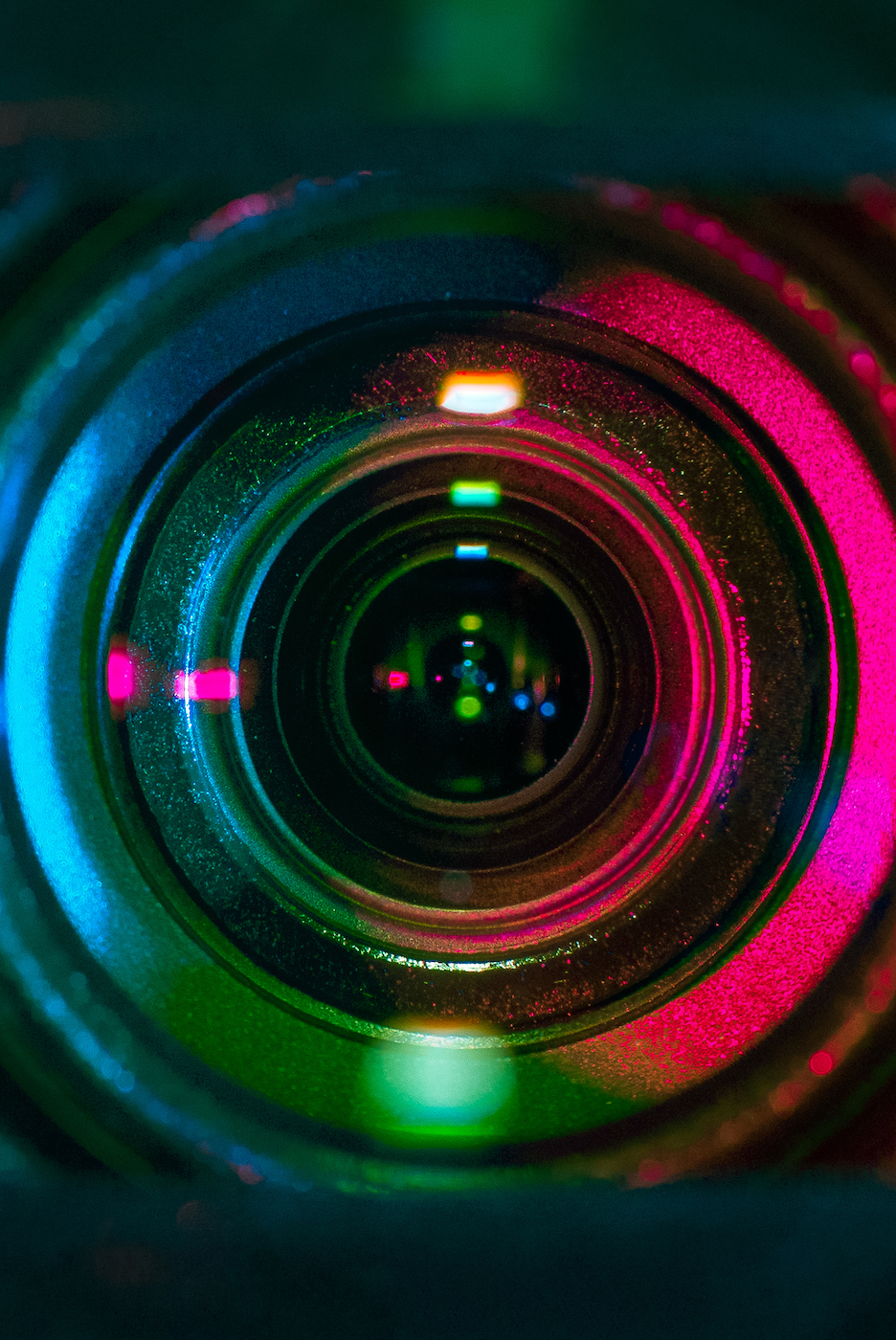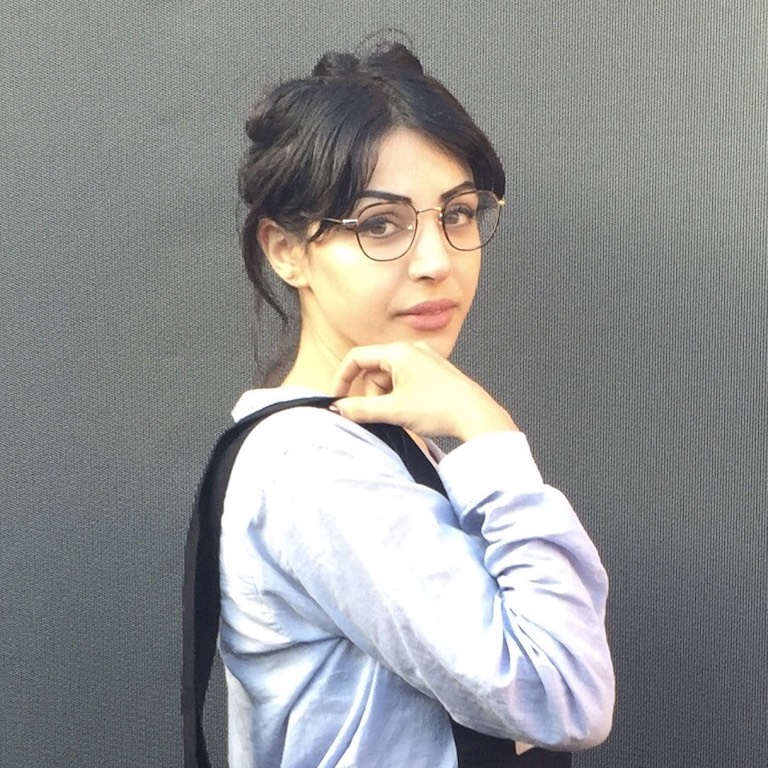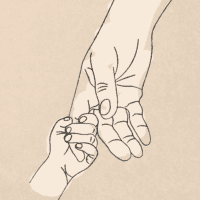On a searing summer evening in New York City last year, I stepped into an old Brooklyn apartment where I intended to stay for the next 10 days.
I’d found the place through Airbnb. It was a short walk from the Williamsburg Bridge, skirted by trendy cafes, Jewish delis and Yemeni bodegas, and it was reasonably priced. I was sharing the flat with John*, the host, a stereotypically bicycle-riding hipster in his 30s, polite but quiet.
Getting ready one morning a few days after I arrived, I stooped to examine the books John kept on a small bookshelf in the bedroom. That was when a small, black and white device – wedged between two novels – caught my eye. I might easily have mistaken it for a portable charger, if it weren’t for the tiny lens glinting up at me.
I felt a flash of uneasiness. I first thought, perhaps he was paranoid I would steal something? But there was nothing in the room aside from the bed, the books, an empty dressing table and an empty cupboard. And the camera had been trained on the bed.
I had trouble determining what to do next.
Stumbling upon a hidden camera felt outlandish – like something you’d see in a movie, or one of those ‘only in America’ moments – but as I later discovered it has become increasingly common, and not just overseas.
The camera had been trained on the bed
Just last month, a tourist was charged with installing a hidden camera in a bathroom at a Bondi backpacker hostel, while a Sydney landlord was jailed for using cameras hidden in clocks and a watch to capture images of tenants having sex, masturbating and using the bathroom.
Precise statistics are difficult to come by, but there has been a steep rise in the number of prosecutions for illegal and covert surveillance, and experts are worried they’re just the tip of the iceberg.
Dr Bruce Baer Arnold, an assistant law professor at the University of Canberra, told us instances of covert filming are almost certainly under-reported by the public, and claimed the law was struggling to keep up with new, sophisticated devices. “The law is inadequate,” he says, “and there are bizarre inconsistencies between states and territories… We have a patchwork of law, and it’s looking increasingly moth-eaten.”
Using hidden cameras to spy on people is nothing new (men were using box brownies to upskirt women in the 19th century), but recent advances in technology mean these devices have become easier to disguise.
Online, a simple search reveals an array of tiny and discreet surveillance cameras – from those hidden in cables, iPhone chargers and keys, to cameras designed to live in alarm clocks, ceilings and bookshelves.
“In the past two years, I’ve noticed a rise in the number of wifi-enabled cameras on the market,” says Bill Sayed, the owner of Spy City, which mainly supplies surveillance equipment to police and other government agencies. “They’re easy to install – you simply download the app, scan the QR code on the camera, and as long as you have the wifi password for the place you’re in – anywhere from a private home, to a café, or shopping centre – you can hide the device and livestream images to your phone, from wherever you happen to be.”


In his anonymous-looking office in Sydney (and yes, I was hoping for something more Bond-like), security advisor and counter-espionage consultant Julian Claxton spreads out a selection of surveillance equipment on the desk for me to examine: cords, car keys, an iphone cable and other small devices that concealed a camera.
Claxton says he was approached recently by a hotel chain in Australia that was concerned about the possibility of covert surveillance of guests. “There are a number of hotels in Asia that have found devices…hidden in hotel rooms behind TVs or in amongst cables and clutter,” he told me. Just last month, police in South Korea arrested two men whom they allege were part of a spycam ring that secretly filmed about 1,600 hotel guests and live-streamed footage online to subscribers.
The motivation for installing hidden cameras varies from personal sexual gratification to financial gain, blackmail or suspicions of infidelity. But Claxton cautions that covert filming is still rare (“most people are decent,” he says, somewhat reassuringly).
Like Baer Arnold, though, he feels under-reporting means it’s difficult to judge the magnitude of the problem.
“Partly [that’s because] because people are embarrassed, partly…because they’re not sure, and probably more likely even if they do find something, it can be hard to determine who put it there and where it’s come from.”
Motivation for installing hidden cameras varies from personal sexual gratification to financial gain, blackmail or suspicions of infidelity
When New Zealander Nealie Barker and her family discovered a hidden camera in the house they’d hired in Ireland last month, they didn’t hesitate to report it to Airbnb. Nealie and her husband, Andrew, an IT consultant, had arrived at the house late in the evening with their five children, and while settling in, Andrew tried to access the wifi.
But when he scanned the network, he found an unusual-looking IP address transmitting a live feed of his family in the living room. They were being observed by a camera hidden inside the smoke alarm. And while the screenshot of them all grinning up at the ceiling made international headlines, Naelie describes a sense of “shock and potential danger” at the discovery. “It felt like a huge invasion of our privacy and it felt like the exact opposite of what Airbnb should be about – mutual trust,” she says.
Barker was eventually reimbursed by Airbnb for her family’s stay and the Airbnb host was suspended from using the service.
As a private company, Airbnb has no obligation to disclose the number of complaints it receives about covert surveillance. The company’s policy allows surveillance cameras in accommodation listed on its site, but the host must disclose it in the property listing beforehand, and cameras in bedrooms and bathrooms are prohibited. If someone finds a covert camera that has not been disclosed, they are entitled to cancel the reservation and receive a refund, even if the camera is not turned on. But penalties may still apply for cancellations.
An Airbnb spokesperson said its policies “strictly prohibit hidden cameras in listings and we take reports of any violations extremely seriously.
“There have been over half a billion guest arrivals in Airbnb listings to date and negative incidents are incredibly rare.”
More broadly, when it comes to obtaining details of police prosecutions relating to hidden cameras, there are also issues with transparency. Each Australian jurisdiction collects data differently, and in New South Wales, for example, it’s impossible to discern from the statistics whether offences took place in hotels, Airbnbs or private homes – they’re all lumped together.
Cameras in bedrooms and bathrooms are prohibited by Airbnb
Federal charges for illegal surveillance are rare unless, for example, images are transmitted using a telecommunications network. Otherwise, these types of offences generally fall under state jurisdiction.
“The alarming fact with the state and territory regime is that it’s so inconsistent,” says Baer Arnold.
For example, the ACT’s Listening Devices Act, which covers covert surveillance, is concerned only with sound recording, which seems antiquated in an age of smart phones and wifi-enabled cameras.
In Victoria it is illegal to film someone without consent (and charges for this offence have quadrupled in the past decade). But in NSW, it’s technically ok to film someone without their knowledge, and surveillance only becomes illegal if you capture them engaging in a “private act”. Worryingly, the number of people prosecuted for this offence in NSW has risen dramatically: 10 years ago, only four charges were laid for spying under those circumstances; last year, it was 76, according to the Bureau of Crimes Statistics and Research.
Michelle Falstein, the convener of the NSW Council for Civil Liberties’ privacy committee said legislation surrounding optical surveillance and hidden cameras needed to be strengthened and updated.
Falstein was involved in a law review submission to update current NSW surveillance laws, which highlighted how “current legislation (did) not appropriately meet the needs and expectations of the community” and called for a “harmonisation of Australian surveillance laws.” She adds, “There has to be political will to do something about it.”
Barker observed that while we’ve forfeited a lot of our privacy in most areas of our lives, the places we live and sleep should remain sacrosanct.
“I think we have given up a reasonable expectation of privacy in so many other domains – online, in public, in dealings with many government agencies and mostly we agree, this is in the name of public safety.
“However, giving up an expectation of privacy in our own homes or in private accommodation we pay to use is a step too far.”
There has to be political will to do something about it – Michelle Falstein
Back in the small Brooklyn room last summer, I switched the camera off and turned it around.
I had lugged two suitcases up five flights of stairs, and the thought of going back down so soon and finding another place made me hesitate.
I was out most of the day anyway, I told myself. I could stick this one out. But when I saw John the next day, he was cold and standoffish. I read Airbnb’s camera policy, and reread the listing for the room. He did not disclose any cameras. I waited until he left and placed the camera in the middle of the bed before I left to let him know I’d found it.
Airbnb refunded the cost of the rental and put me up in a hotel for two nights while I found somewhere else to stay. They also suspended John’s account, but only after I’d left his flat, and I was grateful for the way they handled what could have been a tricky situation.
Despite this odd and jarring incident, I still use hotels and Airbnb… but now I always check the room for cameras before I start unpacking my suitcase.
*Name has been changed









1 Comment